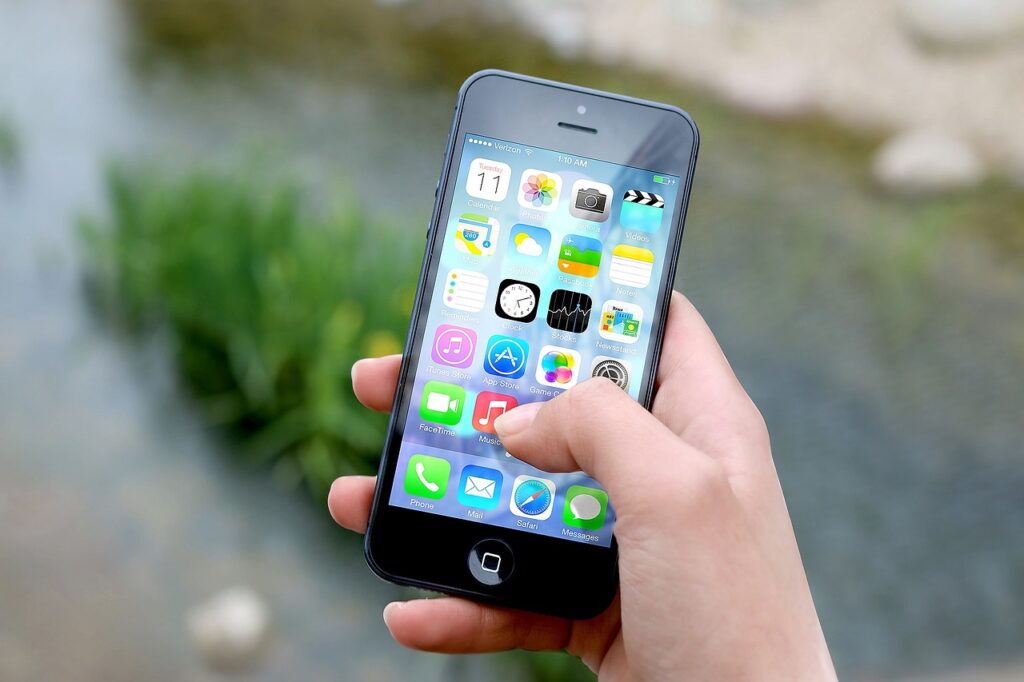Introduction
The Rising Issue of Phone Addiction Among Middle-Aged Men It’s not just teenagers who are glued to their phones; a growing number of middle-aged men are finding it challenging to stop looking at their phones too.
Please note that the following article was not written by a licensed physician and should not be considered as professional medical advice. It is important to always consult with a licensed physician before making any decisions regarding your health. Additionally, it is essential to be cautious when taking advice from any source online, as not all information may be accurate or trustworthy. If you have any questions or concerns about your health, please seek the advice of a qualified healthcare professional.
While it’s common to think that younger generations are the only ones tethered to their devices, the reality is different. Many older men find themselves incessantly checking their screens, a behavior that’s proving to be more than just a harmless habit.
The Negative Impacts of Excessive Phone Usage When you continuously gaze at your device, the repercussions go beyond just wasting time. For one, productivity plummets. Think about the countless hours lost, which could have been spent achieving your goals or spending quality time with loved ones.
Relationships suffer too, as face-to-face interactions become rarer, replaced by the cold glow of a screen. And let’s not forget the toll on mental health; the continuous need to check one’s phone can heighten stress and feelings of inadequacy.
A Comprehensive Guide to Regaining Control If you’re reading this, chances are you’ve realized the need to stop looking at your phone so frequently. This guide is tailored for men like you. By understanding the root of phone addiction and adopting effective strategies, you can pave the way for a balanced digital life. Together, we’ll explore actionable steps to help you reclaim time, strengthen relationships, and foster mental well-being.

The Addictive Nature of Phones
Dopamine Surges and the “Slot Machine Effect”
Recognizing the “Slot Machine Effect” and How Phones Hijack Our Attention Just like the allure of a slot machine keeps gamblers pulling the lever, so too does your phone ensnare you in its grip. Every notification, message, or update creates a surge of dopamine in the brain, the chemical responsible for feelings of pleasure and reward.
The Vicious Cycle of Continuous Checks
This constant reinforcement creates a loop, urging you to keep checking your device in anticipation of the next “hit” of satisfaction. As a result, even when you want to stop looking at your phone, it becomes increasingly challenging to resist the pull.
Psychology’s Role in Screen Addiction
Understanding the Psychological Aspects of Phone Addiction It’s not merely the design of phones that’s at fault; human psychology plays a significant role too. The fear of missing out (FOMO) on news, updates, or social interactions keeps many glued to their screens.
The Downside of Being “In the Loop”
This perpetual need to be “in the loop” can exacerbate feelings of anxiety and isolation. Additionally, the instant gratification that phones provide caters to our natural desire for immediate rewards, further deepening the addiction.
Taking the First Step to Breaking Free
Highlighting the Importance of Self-Awareness and Willingness to Change Overcoming any addiction begins with acceptance. Recognizing and admitting that you have a problem is the first step towards regaining control. For older men who want to stop looking at their phones so often, it’s crucial to develop a keen self-awareness about their usage patterns and triggers.
Embracing Change for a Healthier Relationship with Technology
Once you understand the ‘why’ behind your behavior, you’re in a better position to address the ‘how’ – how to change. With a genuine willingness to alter your habits, you set the foundation for a more balanced relationship with your device.

Assessing Your Phone Usage
The Diagnostic Power of Digital Tools
Using “Screen Time” or Similar Tools to Track Phone Usage Before you can effectively tackle the issue of incessantly checking your phone, you must first understand the extent of your usage. Tools like “Screen Time” on iOS devices or “Digital Wellbeing” on Android provide detailed insights into how much time you spend on your phone, which apps you use the most, and how often you unlock your device.
Facing the Reality of Screen Time Metrics
By monitoring these metrics over a week, you’ll get a clear picture of your habits, making it easier to set informed goals and track progress. It’s a tangible way to see just how often you might be thinking, “I need to stop looking at my phone.”
Understanding the ‘Why’ Behind the Screen
Reflecting on the Reasons Behind Excessive Phone Usage With the data in hand, take a moment to reflect. Why are you spending so much time on certain apps? Is it to stay connected with family and friends, mindlessly scroll through social media, or work-related reasons? Understanding the motivations behind your screen time can help pinpoint areas of concern and provide direction for making meaningful changes.
The Ripple Effects of Phone Distractions
Identifying the Impact of Phone Addiction on Personal and Professional Life Your phone’s grip doesn’t just eat into your free time; it can also infringe on your work and personal relationships. Are you missing out on opportunities at work because you’re distracted? Or perhaps family members have commented on your constant phone checking?
The Balance Between Digital and Real Life
By recognizing the tangible impacts of your phone habits, both professionally and personally, you can garner further motivation to curtail excessive usage. After all, nothing is more vital than maintaining your well-being and nourishing the relationships that enrich your life.
Setting Intentions and Goals
Defining Clear and Realistic Objectives to Reduce Phone Usage To effectively reduce the time spent on your phone, it’s essential to set well-defined, achievable objectives. Start by determining the number of hours or minutes you’d like to cut down each day or week. Instead of vague goals like “I want to use my phone less,” try specifics such as “I aim to reduce my screen time by two hours daily.”
Tailor your objectives according to the insights gained from tracking tools. By doing this, you’re setting a measurable target, making it easier to monitor progress and stay committed. Remember, it’s not just about wanting to stop looking at your phone but setting a practical path to achieve it.
Establishing Specific “Sacred Times” for Phone-Free Activities One of the most effective strategies to curb phone usage is by designating particular periods in your day as “sacred times,” where you consciously avoid any screen interaction. These can be during meals, the first hour after waking up, or an hour before bedtime.
By committing to these phone-free windows, you not only reduce screen time but also allow yourself to engage deeply in other activities or with the people around you. It can be refreshing to savor a meal without the buzz of notifications or to delve into a good book without the itch to check your device.
Exploring the Benefits of Being More Present in Daily Life The real value in making an effort to stop looking at your phone extends beyond mere time saved. By actively choosing to be present, you cultivate a richer, more fulfilling daily experience.
Engaging wholeheartedly in conversations enhances relationships, undistracted work boosts productivity, and enjoying serene moments without the digital interruption can significantly elevate mental well-being. For middle-aged men, especially, this can be a golden period to reconnect with hobbies, passions, and loved ones. Embracing a life less tethered to the digital realm not only benefits your mind but also nurtures your soul.

Breaking the Habit
Utilizing Willpower and Mindfulness to Reduce Phone Checks Breaking any habit requires a combination of willpower and conscious awareness. It’s not enough to just decide you want to stop looking at your phone; you must be actively mindful of your impulses and triggers.
Every time you feel the urge to check your device, pause for a moment. Ask yourself: “Is this necessary?” “What am I hoping to find?” By interrogating these impulses, you can disrupt the automatic behavior and make a conscious choice. Over time, as you exercise your willpower muscle, resisting unnecessary phone checks will become more manageable.
Implementing Strategies to Minimize Distractions from Phone Notifications Notifications are one of the primary culprits that lure you back to your phone repeatedly. To minimize these interruptions:
- Prioritize Alerts: Not every app needs to have its notifications turned on. Prioritize apps that are crucial for communication or work, and mute the rest.
- Use ‘Do Not Disturb’ Mode: When you’re working or spending quality time with loved ones, switch your phone to ‘Do Not Disturb’ mode. This will ensure only priority calls come through.
- Group Notifications: Instead of having your phone buzz every few minutes, group your notifications so they come in at specific times.
By controlling when and how often your phone demands your attention, you regain control over your time and focus.
Overcoming the Urge to Reach for the Phone During Idle Moments One common reason many can’t stop looking at their phones is the discomfort of idle moments. In queues, waiting rooms, or even during short breaks, the phone becomes the go-to distraction. To combat this:
- Carry a Book or E-reader: Always have something to read. This provides an alternative to mindlessly scrolling.
- Practice Mindfulness: Instead of reaching for your phone, take a few deep breaths, observe your surroundings, or simply enjoy the quiet.
- Physical Barriers: Keep your phone in a different room or inside a bag. The slight inconvenience of retrieving it can be enough to deter unnecessary checks.
By embracing and enjoying idle moments rather than filling them, you allow yourself to relax genuinely, think creatively, and be present in the current moment.
Finding Alternatives
Exploring Hobbies and Activities that Provide Fulfillment Without the Phone As older men move forward in their lives, it’s essential to engage in activities that bring genuine joy and satisfaction beyond the digital screen. This could involve:
- Physical Activities: Think about walking, jogging, cycling, or joining a local sports club. Physical engagement not only improves health but also offers an excellent phone-free way to spend time.
- DIY Projects: Engaging in DIY projects around the house, be it gardening, woodworking, or even home improvement tasks, can be therapeutic and provide a sense of accomplishment.
- Learning: Always wanted to play a musical instrument or speak another language? Now is the time to dive into these pursuits.
Rediscovering past hobbies or finding new ones can replace the void that arises when you consciously stop looking at your phone.
Investing Time in Face-to-Face Interactions and Building Meaningful Relationships In a digital age, genuine face-to-face interactions have become more precious. Men in their middle age should prioritize:
- Regular Meet-ups: Schedule regular coffee dates, dinners, or weekend getaways with friends and family.
- Join Social Clubs: Be it a book club, a gardening group, or a community service organization, these gatherings facilitate deep connections and shared experiences.
- Volunteer: Offering time to charitable causes not only benefits the community but also fosters genuine human connections.
Building and nurturing personal relationships is a fulfilling endeavor that enriches life far more than any digital interaction can.
Discovering the Joy of Reading Books or Engaging in Creative Pursuits Reading has always been a window to different worlds, ideas, and emotions. Instead of scrolling through social feeds:
- Build a Reading Habit: Start with genres you love and set aside dedicated reading hours. Over time, this can replace the urge to check your phone.
- Creative Outlets: Dive into writing, painting, sculpting, or any form of artistic expression. Creative pursuits are a fantastic way to channelize energy and emotions.
- Workshops and Classes: Enroll in local workshops. This could be pottery, photography, or writing. It offers skill development and a platform to meet like-minded individuals.
By immersing oneself in enriching activities, the urge to default to the phone diminishes, making space for genuine growth, learning, and emotional well-being.

Creating Physical Boundaries
Designating Phone-Free Zones and Times in the Home To truly stop looking at your phone often, it’s beneficial to establish certain areas and times within your home where phone usage is off-limits. This can include:
- Dining Areas: Make meals a time for genuine family conversations. Having a strict no-phone rule during meals encourages mindful eating and quality interactions.
- Living Room: Designate the living room as a relaxation and family bonding area, free from digital interruptions.
- Specific Hours: Set certain hours, like the first hour after waking up or the hour before bed, as phone-free times to ensure you start and end your day without digital distractions.
Using a Traditional Alarm Clock and Leaving the Phone Out of the Bedroom The bedroom should be a sanctuary for rest and relaxation, not a hub for notifications and blue light:
- Alarm Clocks: Using a traditional alarm clock instead of your phone ensures that you aren’t tempted to scroll before sleep or immediately upon waking. This can significantly improve sleep quality.
- Nightstands: Instead of placing your phone on your nightstand, leave it charging in another room. This not only reduces nighttime disturbances but also ensures you start your day without the immediate urge to check messages or emails.
Practicing Self-Discipline by Leaving the Phone in a Designated Spot During Focused Tasks When involved in tasks requiring concentration, the constant ping of a phone can break focus and reduce productivity. To counteract this:
- Designated Spot: Set up a specific spot in your home or workspace where your phone resides during work hours or while engaging in deep-focus tasks. This reduces the temptation to pick it up impulsively.
- Break Intervals: Instead of checking your phone every few minutes, establish set intervals, like every hour or 90 minutes, to briefly check for any urgent communications.
- Silent Mode: If you must have your phone nearby, switch it to silent mode to ensure notifications don’t interrupt your concentration.
Creating physical boundaries is a clear step towards establishing control over phone usage. For middle-aged men, these steps can significantly improve the quality of both work and relaxation, ensuring a balanced and fulfilling day.
Engaging in Mindful Phone Usage
Developing a Conscious Approach to Using the Phone for Essential Tasks Only Mindfulness is the art of being fully present and engaged in the moment, a crucial skill when dealing with technology. When you stop looking at your phone compulsively and instead use it consciously:
- Purposeful Usage: Before picking up your phone, pause for a second. Ask yourself the purpose of this action. Is it to make a call, send an important message, or just mindless browsing?
- Avoid Multitasking: When using your phone, be fully present in that activity. If you’re reading a message or an article, give it your full attention instead of juggling between tasks.
- Digital Declutter: Periodically review and delete unnecessary apps, photos, or messages. This ensures that your phone serves its essential functions without becoming a digital junkyard.
Setting Time Limits for Specific Apps or Activities on the Phone Many smartphones come equipped with features to help regulate screen time. To ensure you’re not spending excessive time on any particular app:
- Screen Time Features: Use built-in features or third-party apps to monitor your daily phone usage. This provides insights into which apps you spend most of your time on.
- App Limits: Set daily limits for apps that tend to consume a lot of your time, like social media platforms or games. Once you reach the limit, the app will notify or even lock you out until the next day.
- Reminder Alarms: Set occasional alarms or reminders prompting you to take a break from your phone. These small nudges can prevent extended periods of continuous screen time.
Emphasizing Quality Over Quantity in Phone Interactions In the digital age, the depth of interactions often gets overshadowed by the sheer volume of communications:
- Meaningful Conversations: Instead of multiple brief chats, prioritize longer, meaningful conversations. A heartfelt phone call with a loved one can be more fulfilling than dozens of superficial text exchanges.
- Limit Social Media: While it’s essential to stay connected, focus on engaging with quality content or interactions on social media platforms. Leave or mute groups that offer little value or generate endless notifications.
- Value Face-to-Face: Whenever possible, choose face-to-face interactions over digital ones. A coffee date with a friend can provide more emotional connection than weeks of online chatting.
By practicing mindful phone usage, older men can ensure that their interactions are meaningful and that they use technology as a tool rather than letting it dictate their daily routines.
Finding Support and Accountability
Seeking Support from Family, Friends, or Support Groups to Overcome Phone Addiction Stopping the frequent urge to look at your phone is challenging, and having a support system can make all the difference:
- Open Conversations: Share your goal of reducing phone usage with family and friends. They can provide encouragement and gently remind you when they notice you slipping into old habits.
- Digital Detox Groups: Joining support groups or workshops focused on digital detoxification can be beneficial. Sharing experiences and strategies with those on a similar journey offers both insight and motivation.
- Partnering Up: Find a buddy with a similar objective. This partnership can help you both set goals, track progress, and provide mutual support.
Holding Yourself Accountable Through Self-Monitoring and Journaling Personal responsibility is a cornerstone of any change:
- Track Screen Time: Use in-built features or apps to monitor daily screen time. Review this regularly to ensure you’re staying within your desired limits.
- Journaling: Maintain a daily log noting the times when you felt a strong urge to check your phone and what triggered it. Over time, this can help identify patterns and situations that result in increased phone usage.
- Set Clear Goals: Define what reduced phone usage looks like for you, whether it’s a total number of hours, fewer checks per hour, or specific phone-free intervals during the day.
Celebrating Progress and Learning from Setbacks Change is a journey, often with its highs and lows:
- Acknowledge Small Wins: Every hour you spend off your phone or any day you achieve your set goal is a victory. Celebrate these moments, even if it’s just mentally patting yourself on the back.
- Understanding Setbacks: If you find yourself reverting to old habits, instead of being harsh on yourself, try to understand the reasons. Was it a particularly stressful day? Were you waiting and had nothing else to do?
- Stay Motivated: Use setbacks as learning opportunities. They can offer valuable insights, helping you strategize better for the future.
For middle-aged men navigating the digital age, seeking support and holding oneself accountable are crucial. These steps ensure that your journey of reducing phone dependency is both sustainable and rewarding.
Embracing a Balanced Digital Life
Understanding the Role of Technology in Modern Life and Finding Balance The first step to achieving a balanced digital life is to recognize and appreciate the role of technology:
- Integral Yet Overwhelming: Technology, especially smartphones, plays a pivotal role in today’s world, from communication to work to entertainment. However, it’s essential to recognize when it starts overshadowing other vital aspects of life.
- Functional Use: Instead of condemning technology, embrace its functional aspects. Whether it’s for work, navigation, or staying connected with distant loved ones, use it judiciously for specific purposes.
- Boundaries: Draw a clear line between productive and unproductive tech usage. The goal is not to stop looking at your phone entirely but to use it in a way that adds value to your life without dominating it.
Recognizing That Occasional Phone Usage is Acceptable as Long as It’s Intentional Using your phone is not inherently bad; it’s the lack of intention behind excessive use that’s concerning:
- Mindful Consumption: If you decide to browse social media or watch a video, do so consciously. Set a time limit or choose specific content rather than mindlessly scrolling.
- Purpose over Habit: Before unlocking your phone, take a brief moment to determine the purpose. By making this a practice, you’ll prevent unnecessary screen time.
- Avoiding Autopilot: Ensure that your engagements with your phone are active choices, not just automatic reactions to boredom or habit.
Focusing on Personal Growth, Hobbies, and Relationships Beyond the Phone A fulfilling life is multifaceted. By reducing passive screen time, you open up opportunities for personal development:
- Rediscovering Hobbies: Dive into activities you once loved or explore new hobbies. Whether it’s painting, reading, gardening, or playing a musical instrument, these endeavors can be deeply fulfilling.
- Deepening Relationships: Engage more with your family, friends, and community. Face-to-face conversations, activities, and shared experiences foster stronger connections than digital interactions.
- Continuous Learning: Attend workshops, join clubs, or take up courses. Continuous learning and personal growth are invaluable, enhancing both your personal and professional life.
In essence, while technology and phones are integral to modern living, older men must ensure they’re not at the expense of personal growth and genuine human connections. Balancing the digital with the real is the key to a richer, more fulfilled life.
Conclusion
The Significance of a Phone-Free Life for Middle-Aged Men In an era where the digital realm often overshadows the tangible, it becomes paramount for middle-aged men to reclaim the essence of genuine living. The incessant need to be digitally connected can hinder one’s ability to connect with oneself and the immediate world. Breaking the chains of phone addiction is not merely about distancing oneself from a device; it’s about redefining life’s priorities and savoring the richness of the present.
A Call to Action for Older Men To the older men reading this, understand that change begins with a single step. You’ve equipped yourself with knowledge and strategies; now it’s time to put them into practice. As with any endeavor, consistency is key. Remember, it’s not about perfection but progression. Let each day be an opportunity to further yourself from the clutches of digital overdependence and closer to a life of purpose and presence.
Unlocking a World of Enhanced Well-Being and Fulfillment When men decide to limit their phone interactions, they inadvertently open doors to a life brimming with satisfaction, contentment, and vigor. Healthier interpersonal relationships, newfound or rekindled hobbies, and an enriched sense of self are just the tip of the iceberg. This journey towards decreased phone reliance promises not only mental tranquility but also emotional balance and a rejuvenated zest for life.
